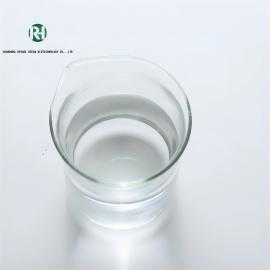-
Categories
-
Pharmaceutical Intermediates
-
Active Pharmaceutical Ingredients
-
Food Additives
- Industrial Coatings
- Agrochemicals
- Dyes and Pigments
- Surfactant
- Flavors and Fragrances
- Chemical Reagents
- Catalyst and Auxiliary
- Natural Products
- Inorganic Chemistry
-
Organic Chemistry
-
Biochemical Engineering
- Analytical Chemistry
- Cosmetic Ingredient
-
Pharmaceutical Intermediates
Promotion
ECHEMI Mall
Wholesale
Weekly Price
Exhibition
News
-
Trade Service
Does lowering blood pressure later in life reduce the risk of dementia? A global study of 28,000 people provides the strongest evidence yet that it can.
Dr Ruth Peters said that in the absence of major breakthroughs in dementia treatment, reducing the risk of developing the disease would be welcome progress
.
She is an Associate Professor at the University of New South Wales (UNSW Sydney) and Head
of the Dementia Program at The George Institute's Global Brain Health Initiative.
"Given the ageing population and the enormous cost of caring for people with dementia, even a small reduction can have a considerable global impact
," she said.
Our research shows that using off-the-shelf treatments to lower blood pressure is currently one of
our 'best bets' for tackling this underlying disease.
" ”
Dementia is fast becoming a global epidemic that currently affects around 50 million people
worldwide.
This number is expected to triple by 2050 – largely due to an ageing
population.
It is currently estimated to cost each patient $200,000 to $40,000
per year.
Dr Peters explained that while many trials looked at the health benefits of lowering blood pressure, few included dementia results, and even fewer were placebo-controlled – which was considered to provide evidence
of optimal levels.
"Most trials were stopped early due to the significant effect of lowering blood pressure on cardiovascular events, which tend to occur earlier
than dementia symptoms," she said.
To examine the relationship between blood pressure and dementia more closely, the researchers analyzed five double-blind, placebo-controlled randomized trials that used different antihypertensive treatments and followed patients until dementia progressed
.
A total of 28,008 people with an average age of 69 years and a history of hypertension from 20 countries were included in the study
.
In these studies, medium-term follow-up was more than
four years.
Dr Peters said: "We found a significant effect
of treatment in reducing the risk of dementia associated with a sustained reduction in blood pressure in the elderly population.
Our findings suggest a broad linear relationship
between lowering blood pressure and reducing dementia risk, regardless of the treatment used.
”
The researchers hope that the findings will help design public health measures to slow the progression of dementia and inform treatment because, in older adults, people may be hesitant
about how much to lower their blood pressure.
Dr Peters said: "Our study provides the highest level of available evidence that after several years of antihypertensive therapy can reduce the risk of dementia, we did not see any evidence of
harm.
But what we still don't know is whether further lowering blood pressure in people who are already well controlled, or who start treatment early in life, reduces the long-term risk
of dementia.
”
"This work is an important basis for clinical trials to provide reliable estimates of the benefits and risks of preventive treatments, and how best to apply them
in different populations.
"
Reference: Blood pressure lowering and prevention of dementia: an individual patient data meta-analysis







